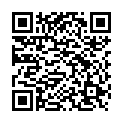|
|
|
| Module code: DFBI-343 |
|
|
4V (4 hours per week) |
|
4 |
| Semester: 6 |
| Mandatory course: no |
Language of instruction:
German |
Assessment:
Written exam 90 min.
[updated 06.07.2021]
|
DFBI-343 (P610-0196) Computer Science and Web Engineering, Bachelor, ASPO 01.10.2018
, semester 6, optional course
KI370 (P200-0006) Computer Science and Communication Systems, Bachelor, ASPO 01.10.2014
, semester 3, mandatory course
|
60 class hours (= 45 clock hours) over a 15-week period.
The total student study time is 120 hours (equivalent to 4 ECTS credits).
There are therefore 75 hours available for class preparation and follow-up work and exam preparation.
|
Recommended prerequisites (modules):
None.
|
Recommended as prerequisite for:
|
Module coordinator:
Prof. Dr. Benedikt Faupel |
Lecturer: Prof. Dr. Benedikt Faupel
[updated 06.03.2017]
|
Learning outcomes:
After successfully completing this module, students will understand digital circuits (switching networks and switching plants), be able to analyze them and design them. Students will be proficient in the methods of digital technology, the use of intelligent components (counters, memories, converters, coding systems), their operation and application in practical examples.
[updated 06.07.2021]
|
Module content:
1. Introduction and principles of digital technology
1.1. Number systems (decimal, dual, octal, hexadecimal)
1.2. Adding and subtracting binary numbers (formation of complements)
1.3. Basics with the mathematical description of digital control systems
1.4. Introduction to and application of the z-transform
1.5. Functional description and representation of elementary digital transmission elements
2. Circuit algebra and circuit analysis
3. Circuit synthesis
3.1. Disjunctive and conjunctive normal form
3.2. Graphical circuits synthesis (Karnaugh-Veitch maps)
4. Circuit families
5. Memory components
5.1. Structure and function of flipflops
5.2. Level-triggered flipflops
5.3. Clock-controlled flipflops
5.4. Edge-triggered flipflops
5.5. Characteristic equation
5.6. Binary codes
6. Counter and frequency divider
6.1. Asynchronous counters
6.2. Synchronous counters
6.3. Frequency dividers
7. Digital selection and connection circuits
7.1. Registers and memory circuits
7.2. DA and AD converters
8. Computing circuits
8.1. Half adder, full adder
8.2. Subtractor circuits
8.3. Multiplier circuits
9. Introduction to DIGSIM
[updated 06.07.2021]
|
Recommended or required reading:
BEUTH K., BEUTH A., Elektronik Bd. 4 Digitaltechnik, Vogel, 2001
URBANSKI K, WOITOWITZ R., Digitaltechnik. Ein Lehr- und Übungsbuch, Springer, 2000
LIPP M., Grundlagen der Digitaltechnik, Oldenburg, 2002
[updated 06.07.2021]
|

